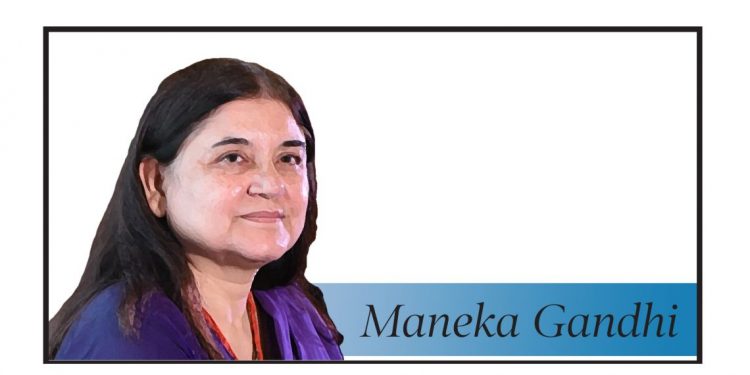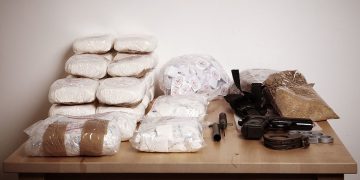Oxidation is a chemical reaction that happens when a substance is exposed to oxygen. For instance, when some foods, like apples and bananas, have their peels removed and are exposed to oxygen, they turn brown. Or a bicycle rusts.
Oxygen is sometimes referred as ‘Deal with the Devil’ because the same oxygen that helps in the process of producing energy and fighting bacteria also creates substances in the process that may be dangerous to life.
The oxygen that we breathe helps to break down the molecules in the food so that they produce energy. This happens through a process called oxidation of food. Oxidation also takes place when our immune system is fighting bacteria and creates inflammation. It happens when our bodies try to detoxify pollutants like cigarette smoke. There are many processes like this in which oxidation occurs.
In this process, the oxygen molecules split up into single atoms with unpaired electrons. Electrons like to be in pairs, so these single atoms are called free radicals and these roam around like smash and grab artists trying to grab electrons from other molecules in the body. When these electrons are stolen, the cell is damaged.
Free radicals, which are the end-products of oxidation, are not absorbed by the body and they damage cells, proteins and DNA. Once free radicals are formed, a chain reaction occurs. The first free radical pulls an electron from a molecule. This destabilises the molecule and turns it into a free radical. That molecule then takes an electron from another molecule, destabilising it and turning it into a free radical. This domino effect can eventually disrupt and damage the whole cell.
Oxidative stress occurs when there are too many free radicals and too much cellular damage. Oxidative stress refers to cell and tissue damage and has been linked to heart diseases, cancer, stroke, respiratory diseases, immune deficiency, Parkinson’s disease and other inflammatory conditions.
But nature has provided an answer to free radicals: Antioxidants.
Antioxidants keep free radicals in check. They are molecules in cells that prevent free radicals from taking electrons and causing damage. Antioxidants are able to give an electron to a free radical without becoming destabilised themselves, thus stopping the free radical chain reaction. Just like fibre cleans up waste products in the intestines, antioxidants clean up the free radical waste in the cells. Our body produces some antioxidants on its own, but we need to eat them in order to reduce or eliminate the effect of free radicals.
Thousands of studies have shown that consuming fruits and vegetables is linked to a lower rate of chronic diseases. In a research study published by the European Respiratory Journal, scientists examined the combined association of meat consumption, vegetable and fruits consumption and compared the total antioxidant capacity with lung function. The study was conducted among 1,551 males and 1,391 females in the UK. The study found that lung function deteriorated in those who consumed mainly meat with very low fruit and vegetable consumption. Lung function was found to improve with an increased consumption of fruits and vegetables, showing the effect of antioxidants on breathing ability.
But why is that? The ORAC (Oxygen Radical Absorbance Capacity) is a method developed by scientists at the National Institute of Health and Aging to measure the antioxidant capacity of different foods. Foods with higher ORAC scores have greater antioxidant capacity, and more effectively neutralise harmful free radicals. Scientists state that the body can effectively use 3000-5000 antioxidant or ORAC units per day. Any more than this (i.e. mega-dosing in supplement form) seems to be of no added benefit and ‘excess’ is most likely excreted by the kidneys. I quote Dr Ronald Prior of the US Department of Agriculture Research Service at Tufts University, Boston, Massachusetts: “A significant increase in antioxidants of 15-20% is possible by increasing consumption of fruits and vegetables, particularly those high in ORAC value. However, in order to have a significant impact on plasma and tissue antioxidant capacity one can only meaningfully increase one’s daily intake by 3000-5000 ORAC units. Any greater amount is probably redundant. That is because the antioxidant capacity of the blood is tightly regulated. Thus there is an upper limit to the benefit that can be derived from antioxidants. Taking in 25000 ORAC units at one time would be no more beneficial than taking in a fifth of that amount: the excess is simply excreted by the kidneys.”
The ORAC value of a food is determined by a lab test that quantifies the ‘total antioxidant capacity’ (TAC) of a food. The food is put in a test tube, along with molecules that generate free radical activity and molecules that are vulnerable to oxidation. The food is measured on how well it protected the vulnerable molecules from oxidation by the free radicals. The less free radical damage there is, the higher the antioxidant capacity of the test substance.
Research published in Nutritional Journal 2010, categorised 3100 different foods into 24 categories to measure for ORAC value.
The ORAC values of eggs, meat and fish are at abysmally low levels. Pork has the lowest ORAC value.
In this COVID age, your immunity depends solely on the oxygen carrying capacity of your blood and lungs. The higher the ORAC values in your food, the higher the capacity.
Natural food such as spices, fruits and vegetables – even just a teaspoon of ginger, tulsi, turmeric – have very high ORAC values. The higher ORAC value foods increase your immunity and prevent cancers, neuro-degenerative disorders, diabetes and so many chronic conditions. High ORAC foods also have nutrients such as iron, vitamin C, zinc, omega 3, magnesium and vitamin D.
Herbs like brahmi, ashwagandha, shatavari, mulethi, arjunarishtam, peppermint, coriander seeds, and cumin black seeds are now being tested for their ORAC values.
Milk not only has a really low ORAC value but it goes one step further in destroying your health: it actively blocks antioxidants. Several studies have been conducted to find whether milk decreases the antioxidant capacity of other food substances. Research shows that adding milk to tea decreases the antioxidant capacity of tea (Source: Effect of milk-alpha-casein on tea polyphenols, PubMed). The milk protein, casein, reduces the ability of antioxidant substances to fight free radicals. One study found that milk reduced the antioxidant capacity of chocolate by approximately 30 per cent, while another study found that milk negated the antioxidant effects of chocolate altogether.(Source: Plasma antioxidants from chocolate, PubMed). Eating blueberries with milk reduced the absorption of their polyphenols and blocked their antioxidant effects. (Source: Antioxidant activity impaired by milk, PubMed)
To join the animal welfare movement contact gandhim@nic.in, www.peopleforanimalsindia.org






































